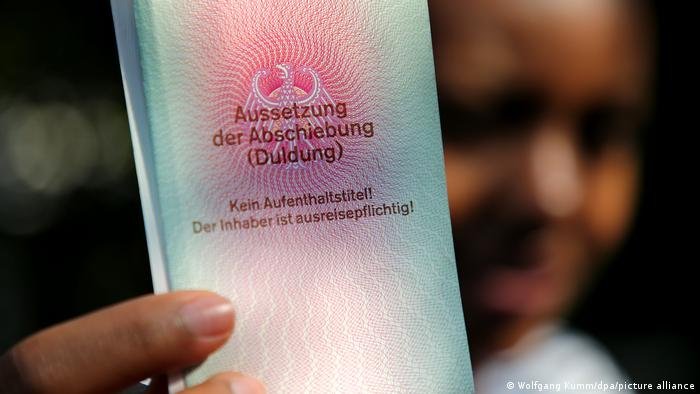German government data shows that about 28% of asylum applications are rejected. Here's what you should know and what you can do if your asylum application is rejected.
Last year, a total 244,132 asylum applications were filed in Germany, according to numbers provided by the Federal Office for Migration and Refugees (BAMF). Germany is hosting the greatest number of refugees in Europe.
Government data shows that about 28% of asylum applications are rejected. If your asylum application is rejected, here is what you should know about the options that are available to you.
What are the types of asylum rejection decisions?

When an asylum application is rejected, there are usually two types of decisions:
- Outright rejection: you have to leave the country within 30 days
- Manifestly unfounded: you have to leave the country within one week
Both rejections can be appealed. The written notice about your application for asylum should have a notice of appeals or Rechtsbehelfsbelehrung. This lists the available options to appeal and their deadlines.
As a matter of principle and prudence, it is important to file your appeal as soon as possible. The deadline runs from the time you receive the notice. Check the envelope of your notice to check the exact delivery date when you received your decision.
What is the basis for these rejection decisions?
You may receive an outright rejection if:
- another EU country has already granted you protection
- you have refugee status or protection in another country outside of the EU and that country agrees to take you back
- a country outside of the EU is considered a "safe third country" for you
On the other hand, an application may be manifestly unfounded if your circumstances indicate that they are remaining in Germany "only for economic reasons or to evade a general emergency situation" or if your case contains inconsistent facts.
Other reasons for an asylum application to be manifestly unfounded:
- Key aspects of the applicant’s statements are unsubstantiated or contradictory or do not correspond to the facts they are based on. This includes forged or falsified evidence.
- The individual misrepresents or refuses to state his identity or nationality in the asylum procedure.
- The individual has filed another asylum application or asylum request using different personal data.
- The individual filed an asylum application to avoid termination of residence although he had had sufficient opportunity to file an asylum application earlier
- The individual has violated his obligations to cooperate with the authorities to establish the facts of their case.
- The applicant could be legally expelled under conditions outlined in the Residence Act
- The asylum application has been filed on behalf of a foreigner without legal capacity
What are my options?

- File a complaint
You can personally go to the administrative court and file your complaint in writing or orally.
- Tolerated stay ("Duldung")
In instances where you cannot leave the country, such as a lost passport or you are incapable of traveling because of medical reasons, you can apply for a "Duldung" or tolerated stay permit. A "Duldung" is usually only issued for a specific number of days, weeks or months. You can legally reside in Germany for the time being with a "Duldung," but your obligation to leave remains.
- Hardship Regulations ("Härtefallregelung")
When you are well-integrated in Germany and deportation back to your country of origin is likely to leave you displaced in various ways, you can try to obtain a residence permit by submitting a hardship application ("Härtenfallantrag").
In this case, you will need to prove you are fluent enough in German and have ties in Germany which can be established by going to school, attending vocational training, having a job or volunteer experience.
The interior ministry of your federal state of residence decides whether your case must be recognized as a case of hardship.
Each German federal state has a hardship commission ("Härtefallkommision") that will evaluate your application. The basiswissen.asyl.net website has links to the hardship commission in your jurisdiction.
- Church asylum or ("Kirchenasyl")
You can ask for asylum at a church which may decide to take you in for a limited time. This option can take a long time as the Church negotiates with the authorities. While under Church asylum, you will no longer receive state benefits and will not be allowed to leave the Church premises. Additionally, some asylum seekers are deported despite having church asylum.
Check the Federal Office for Migration and Refugees website for more information about appealing a rejected asylum application. The Handbook Germany website also contains more details about the options available to you.
